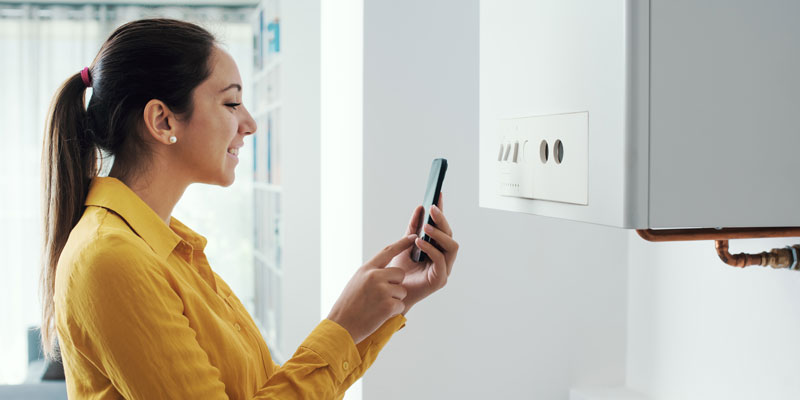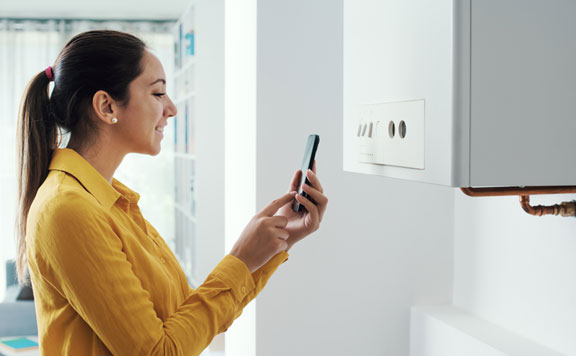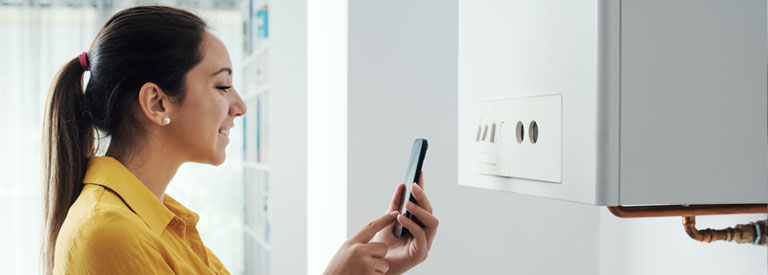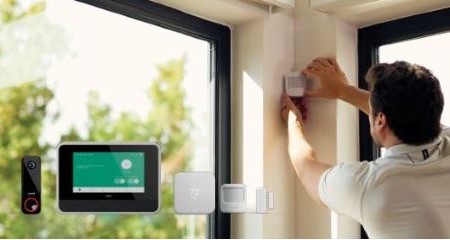
Get your 2 highest-use days a week FREE + $200 in bonus bill credits for extra savings.

Straightfoward plan with a locked-in energy charge.

Designed exclusively for smaller spaces.
Pricing Details
Early cancellation fee
Pricing Details
Early cancellation fee
Texas electricity pricing includes charges from Reliant and delivery charges from your TDSP/utility (CenterPoint Energy). The combined charges below divided by your total monthly usage equals your average price per kWh.
1 The total amounts assessed by a Transmission Distribution Service Provider (TDSP) for the delivery of electricity to a customer over poles, wires and other TDSP facilities, not including discretionary charges.
Smart water heaters: A smarter way to save energy at home
Explore the benefits of a smart water heater — from energy-saving features to app-based control. Discover how it can fit into your smart home setup with Reliant.



Smart water heaters: A smarter way to save energy at home
Explore the benefits of a smart water heater — from energy-saving features to app-based control. Discover how it can fit into your smart home setup with Reliant.
When it comes to home energy use, most people think about turning off lights or adjusting the thermostat, but what about your water heater? It might not be flashy, but it’s one of the biggest energy consumers in your home. In fact, heating water can account for nearly 20% of your home’s energy bills.ⁱ
Upgrading to a smart water heater gives you more control, better energy management capabilities and a more connected home. With features like Wi-Fi or Bluetooth connectivity, real-time monitoring and compatibility with devices like smart speakers and smart thermostats, smart water heaters bring modern convenience and meaningful energy savings.
Traditional tank water heaters maintain hot water 24/7 — even when you’re not using it. This standby power loss leads to unnecessary energy costs. Smart water heaters reduce this by heating water only when it’s needed and giving you more control over heating cycles through apps, timers and sensors.
Heat pump water heaters are a dream for efficiency. They draw warmth from the surrounding air to heat your water instead of relying solely on traditional heating elements. This makes them ideal for eco-conscious homeowners wanting to cut back on emissions or those looking to reduce energy costs because they are up to 3 times more efficient than the traditional water heater.
The Uniform Energy Factor (UEF) is the current standard for measuring water heater efficiency in the U.S., replacing the older rating system, Energy Factor (EF). It accounts for how efficiently the heat is transferred to the water (recovery efficiency), the heat lost from the tank into the surrounding area (standby losses) and energy lost as water circulates through the system (cycling losses).
The higher the UEF rating, the more efficient the water heater, which will vary depending on the water heater type:
You should also look for Energy Star-certified models. Energy Star-rated water heaters meet strict efficiency and performance criteria, often saving 10%–50% more energy than standard models. Smart models with this label may qualify for valuable rebates. Plus, they may easily sync with your energy-efficient appliances and have other smart features like vacation mode, demand response or app-based control.
Not all smart water heaters are built the same. To make the right choice, you’ll need to consider your household’s hot water needs, energy usage and installation space.
Begin with your basics: How many people live in your home? How many faucets, showers and appliances like dishwashers are running each week, and do you have gas hook-ups, or do you need an electric unit? Typically, larger families need a higher-capacity tank water heater, while smaller homes might benefit most from an electric tankless heater option that saves space and energy.
More isn't always better. Oversized water heaters waste energy heating extra water, while smaller units can wear out from overuse. The right-sized model ensures efficient heating without unnecessary energy consumption, making both your budget and warranty go further.
Smart water heaters, especially premium models like electric tankless units, may cost more upfront, but they can pay off through lower utility bills and reduced maintenance. Add in tax credits, rebates and energy savings over time, and the overall investment can add up.
Today’s smart water heaters are packed with tech-focused features designed to improve your comfort and help reduce energy costs.
Smart electric water heaters come loaded with features that give you full control right from your phone or smart home device.
Whether you're home or away, a smart water heater adapts to your lifestyle to heat only the water you need, when you need it. With a smart water heater, you can benefit from these smart functions that help maximize your energy savings:
Want a smarter, more connected home? A smart water heater can link up with your home automation system, letting you use voice commands, sync with other smart devices and keep an eye on your energy use.

Reliant and Vivint are partnering to create an exclusive smarter home experience. Pairing electricity with home security helps you optimize comfort and protection from anywhere.
A smart water heater is easy to love, but professional installation and routine maintenance are essential to help ensure your system runs efficiently year after year.
Installing a smart water heater isn’t a DIY job. It’s best to hire a plumber to ensure your water heater is installed correctly for safety, warranty coverage and full system efficiency.
Smart doesn’t mean maintenance-free. Scheduled upkeep helps ensure your unit works like new and can prevent potential energy waste.
Upgrading to a smart water heater is a simple way to help lower your energy use, reduce monthly utility bills and support a more sustainable home. Many models may even qualify for rebates or federal tax credits, helping offset upfront costs.ⁱⁱ With long-term savings on energy and maintenance, most smart water heaters pay for themselves in just 3 to 7 years.
Smart water heaters do more than just deliver hot water — they learn your usage patterns to optimize energy efficiency and reduce waste. Unlike traditional models, they offer full control through customizable settings, real-time usage insights and seamless integration with smart home systems. This means greater convenience, smarter energy use and more savings over time.
Whether you’re looking to improve your energy efficiency or reduce your energy usage costs, Reliant is here to help. With personalized energy plans, helpful account management tools and real customer benefits, Reliant makes it easier than ever to bring smart savings and smarter comfort to your home.
Count on Reliant to help you make more informed, empowered choices in all the ways you use energy. Ready to find your Reliant electricity plan?
Smart water heaters save 10%-30% more energy than conventional models by reducing standby operation, scheduling capabilities and improving heat transfer.
You can view real-time energy usage in your water heater’s app and compare your usage to previous months and monitor your utility bills.
Most experts recommend setting your water heater to 120°F. It’s hot enough for comfort and safety, but cool enough to avoid energy waste and scaling.
If your smart heater isn’t syncing with your smart home system, double-check Wi-Fi access, restart the app and look for firmware updates. If integration still fails, consult the manufacturer or a licensed plumber with experience in smart systems.
Related articles
Select a category from the dropdown menu.